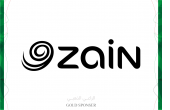THE END OF THE ROAD

Mar 30, 2016
After 25 years of wrestling, multiple Asian champion Yahia Abu Tabeikh has decided the time is right to call it a day.
With Olympic qualification for this summer’s Rio Games beyond him, the three-time Black Iris Sportsman nominee decided it was time to listen to his body and focus on the next chapter of his life.
And, thankfully for Jordan, that means using his wealth of global experience to nurture the next production line of local wrestling champions.
“I have so much to give back to this sport so I am looking forward to hopefully getting a wrestler or two to the Tokyo 2020 Olympic Games,” he said. “I want to make sure they avoid the mistakes that I have made in the past and become better wrestlers.
“It was not easy for me to announce my retirement. Wrestling is my life, but it's time to retire as the gap in age between me and my opponents was becoming too much to bridge.”
Yahia’s journey began back in 1992 after the then 10-year-old saw it played for the first time at Al Raed Club.
"Everything changed when I first watched this sport,” he recalls. “I loved it straight away so I started playing until I was chosen to represent the national team at just 16.”
The teenager made a big impact. Just two years later he won gold when he was the youngest member of the national team in his first international championship – the Al Hussein Championship in Amman.
His career was dominated by firsts. He became the first Jordanian wrestler to win any medal at an Asian level, in Qatar 2006, a year after he was a finalist in the World Championships after he beat the World Champion in the semi final.
“That was one of the unforgettable moments in my life for me," he remembers.
He has been Asian Club champion, West Asian champion not to mention Arab champion on an unprecedented 10 occasions.
His three nominations as Black Iris Best Sportsman of the Year came in 2006, 2007 and 2010.
Unfortunately the biggest prize of them all eluded him – an Olympic Games appearance.
“I always had bad luck when the qualifications came around,” he said. “It was either a sickness or an injury so I just didn’t quite make it which is a shame.”
Further frustration came during his last appearance in an Asian Games two years ago in Incheon, South Korea. Considered a favourite for a medal, Yahia lost his first round match after defying his doctor’s orders not to play due to illness.
"It was a really important championship that only happens every four years so I had to play despite my condition getting worse. I wanted another Asian achievement but couldn't deliver, so I felt very sad.”
It was also the start of the end for Yahia who began planning for life after competition.
And looking ahead, he believes the talent is here to produce Olympic wrestlers but has called for more finance and support from the national governing body.
He highlights his father Mohammad as his role model and lists Russian Alex Tarling, the legend of wrestling and a world champion 12 times, as his idol.
So, with a new beginning, Yahia offers one line of advice to the next generation.
"There is no despair with life and no life with despair," he said.







